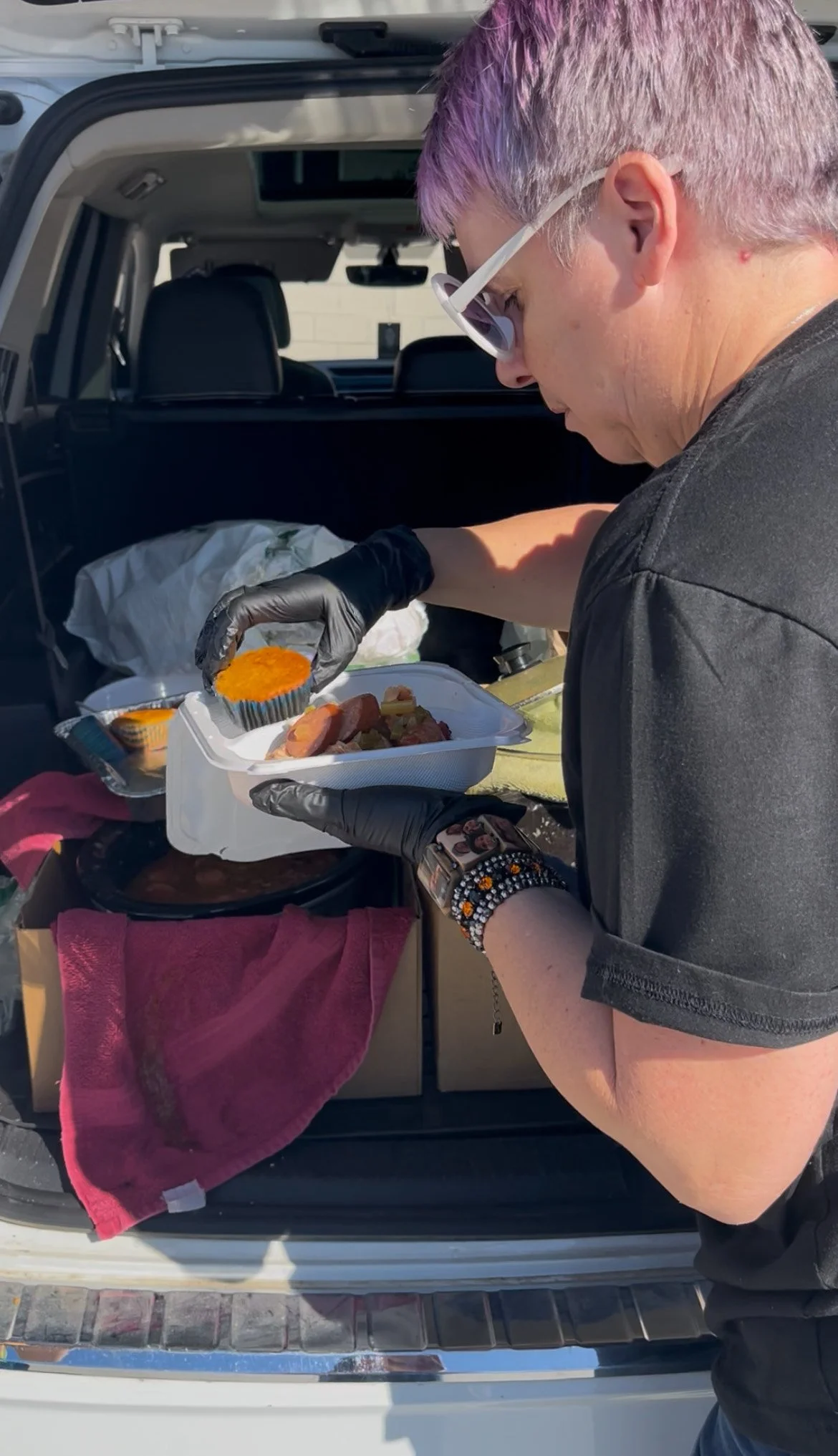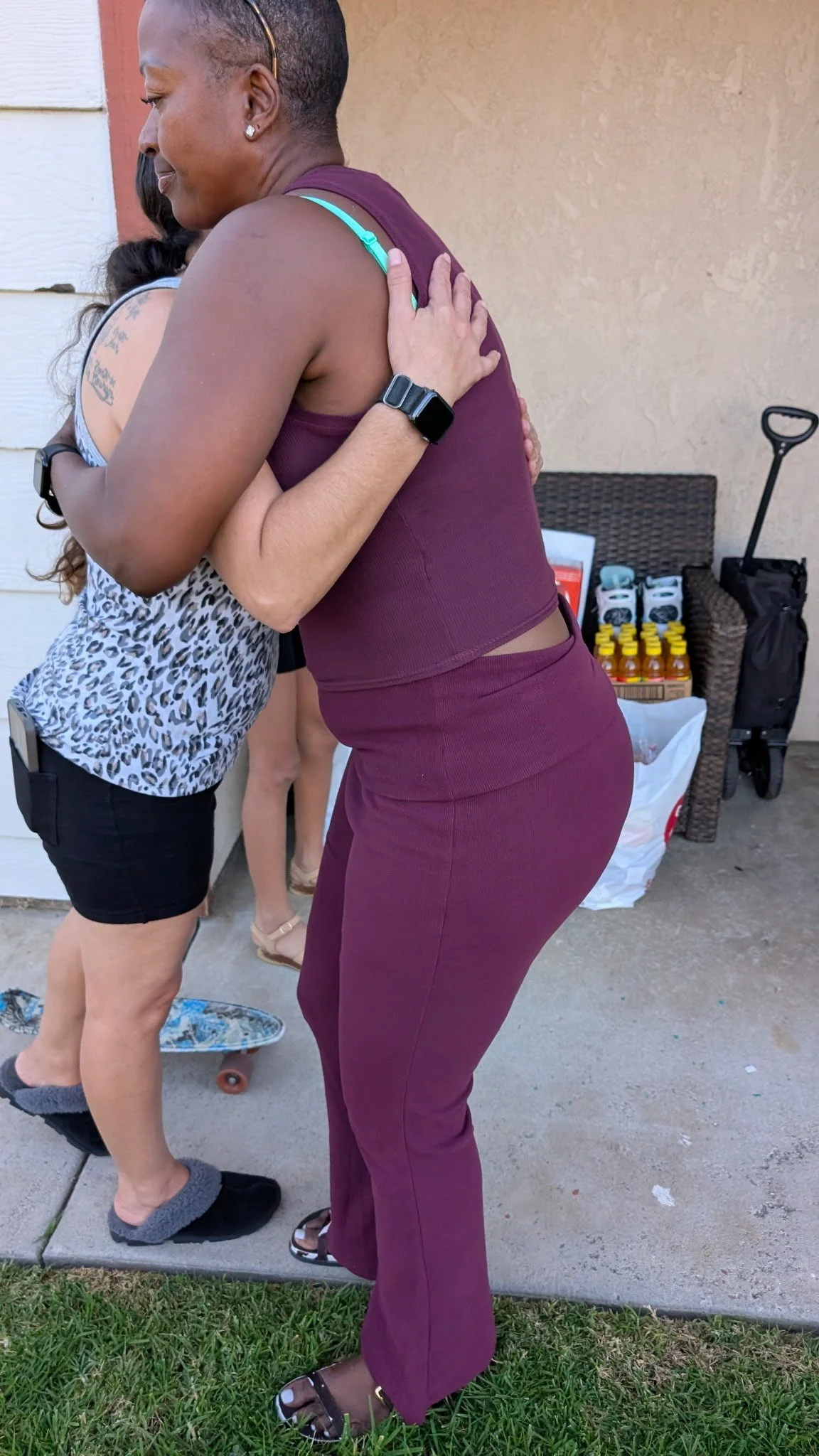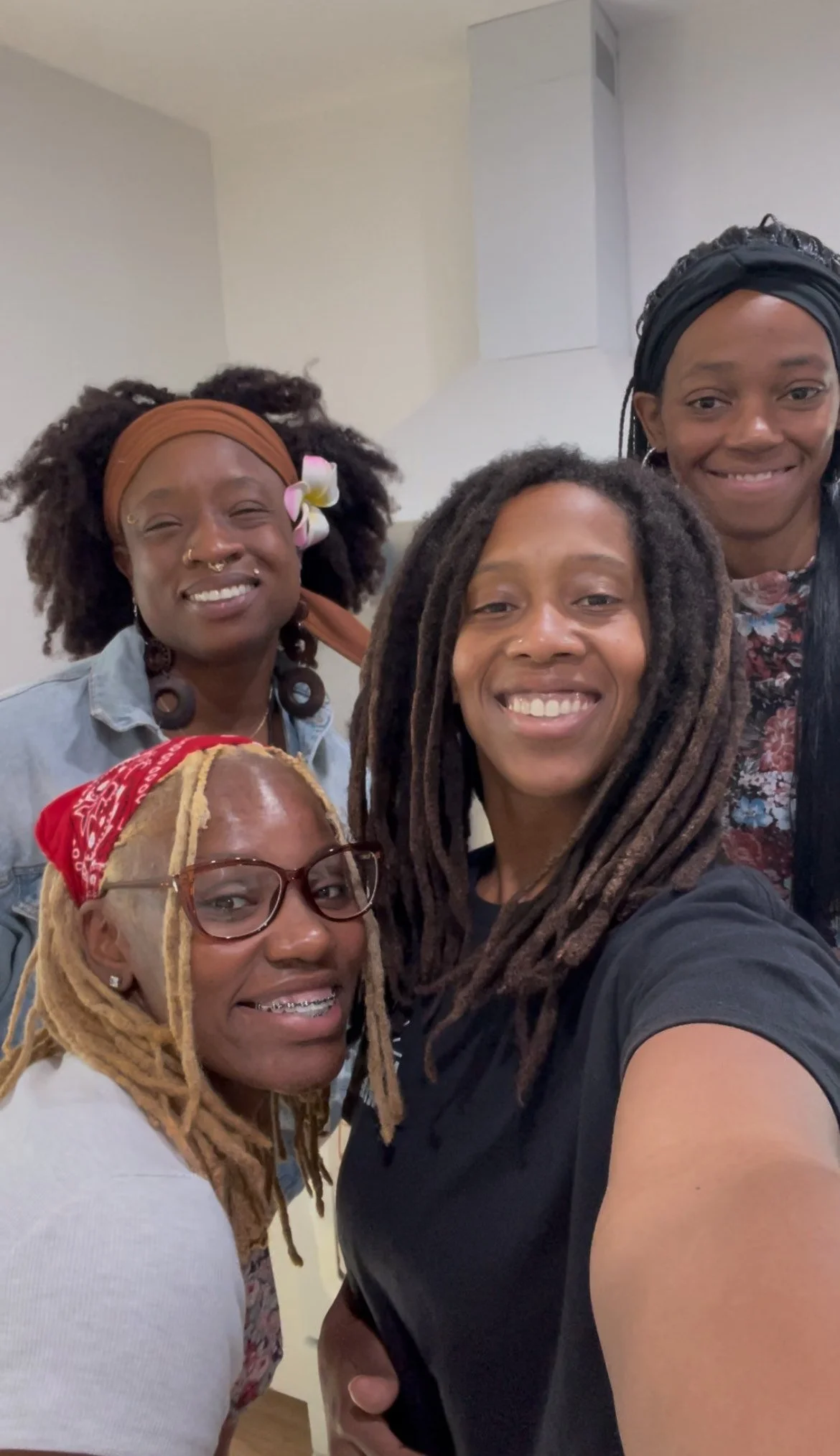Working Models: Mutual Rise
Meet the Grassroots Network Feeding California’s Unreachable Hungry
As formal safety nets thin, informal networks around the nation are stepping in to fill the gaps.
In Riverside Co., California, where the cost of living has surged and public assistance systems have struggled to keep pace, Mutual Rise has become a small but increasingly essential presence.
The grassroots organization, founded by community member Jasmine Louis, delivers meals and essentials directly to people who are often unable to reach traditional sources of aid.
What began as a one-woman effort to hand out meals from a car has grown into a decentralized network delivering food and essentials directly to unhoused residents, working families, older adults and people shuffled through the churn of transitional housing.
According to Louis, the organization operates less like a charity and more like a field-based infrastructure, moving resources to the places where need is concentrated but visibility is low.
The challenge, in her view, is not the volume of available resources but the systems that determine how—and to whom—they are distributed.
“Food and shelter are basic human rights that aren’t being met because of systemic issues, not personal failings,” Louis told HYVEMIND. “Our mission is to support people experiencing housing and food insecurity with no strings attached.”
The Work + Mission
Mutual Rise was created in response to a growing disconnect between where food assistance exists and where people can actually access it.
In many parts of the Inland Empire, simply reaching a pantry or shelter is untenable.
Lack of transportation, limited shelter hours, health complications, safety concerns and competing work schedules all form a daily geography where the barrier isn’t the absence of food, but the inability to access it.
Read More from HYVEMIND: The Unreachable Hungry: Mapping the Distance Between Hunger and Help
The organization’s mission reflects this reality. Its work is designed around the premise that support should reach people in the locations where their lives unfold.
“It is completely unrealistic to think everyone who needs food or housing can simply walk or drive to a food pantry or shelter every day,” Louis said.
“Expecting everyone to do that is rigid, outdated and absent-minded. This is why we focus on mobile service to help bridge the gap.”
Who They Serve
The people The people who rely on Mutual Rise reflect a cross-section of those most affected by the region’s affordability crisis.
Some are older adults living alone after medical expenses eroded their savings.
Others are workers who hold multiple jobs yet cannot secure stable housing.
Many are in transitional housing after escaping domestic violence, aging without family support or recovering from injuries that left them unable to work.
Their circumstances vary, but the through line is structural: the existing system is not oriented toward people with limited mobility, unstable schedules or daily survival pressures.
Mutual Rise reaches individuals who are often counted in official statistics but rarely seen in daily service operations.
What They Do
Mutual Rise offers three programs that collectively form a mobile safety net:
Mobile Food Service: Delivering meals and essentials directly to unhoused residents, seniors in affordable housing and working families facing food insecurity.
Free Breakfast Program: A 4-hour, stationary morning meal where guests can rest, listen to music and connect with others.
Shelter Dinner Service: Preparing and serving dinner for residents at the local shelter.
Together, these programs create a decentralized approach to food access, shaped by proximity, flexibility and consistency rather than bureaucracy.
How They Do It
Mutual Rise partners with nonprofits and receives surplus food and essentials from local restaurants, grocery stores and farms. Those donations form the backbone of the operation.
From there, volunteers portion, pack and prepare meals across borrowed kitchens before heading out on delivery routes that shift week to week.
The model is deliberately mobile. Rather than directing people to central locations, the team moves through encampments, transitional housing facilities, senior complexes and the pockets of the county where need concentrates but services remain sparse.
According to Louis, the organization’s methods reflect lessons learned from long-term outreach. Volunteers approach carefully and visibly, offering water first and providing sealed food when safety or trust is a concern.
These subtle protocols—how to introduce oneself, how to navigate a space without disrupting it, how to hand someone a meal in a way that feels safe—are a core part of their operational framework.
And all of this taking place against a backdrop of sharp increases in homelessness across the county and routine encampment sweeps.
These sweeps displace the very communities Mutual Rise serves, scattering people across the region and severing the continuity needed for consistent support.
As a result, much of the organization’s work involves locating individuals after they have been moved, often with little or no notice, and re-establishing contact to ensure they are not cut off from food or essential supplies.
The result is a system that must constantly adapt: preparing meals, adjusting routes, identifying newly displaced residents and responding in real time to changes in the local landscape.
A Vision Built on Mobility, Housing & Redistribution
Looking ahead, Louis described a trajectory that extends well beyond the organization’s current scale. She envisions a network supported by a larger, more coordinated delivery fleet capable of reaching residents consistently across a county where distance and displacement routinely interrupt access to food and essentials.
Housing is also part of that plan, though in a more targeted way. Mutual Rise is exploring small, decentralized, pet-friendly micro-shelters designed for longer stays, a shift from the short-term models that move people out before stability is possible.
“Our world is full of abundance and everyone on earth can have all their basic needs met without taking away from anyone else,” Louis said. “We systemically produce far more than we consume every single day. I see it every time I pick up food from food distributors. The issue is the way the resources are distributed.”
Louis’s broader hope is that future generations inherit a model of care no longer shaped by scarcity narratives. In her view, meeting basic needs should function as a shared civic responsibility rather than a test of individual endurance.
Taken together, these plans position Mutual Rise as more than a food-distribution effort. Its work amounts to a quiet but insistent call for more equitable resource flow, and a model of care designed to move without institutional friction.
4 Ways You can Help Support Mutual Rise:
Follow Mutual Rise on Social Media and Amplify their mission
DONATE to Mutual Rise
You can send direct support to Mutual Rise via Venmo: @mutualrise or PayPal: @mutualrise
You can also send donated items via Mutual Rise’s Amazon Wish List
Note: In-kind donations are tax-deductible through Mutual Rise’s nonprofit fiscal sponsor (email contact@mutualrise.org for their EIN number). Cash donations are not tax-deductible. Every contribution directly funds meals, hygiene kits, supplies, and the modest operational costs needed to keep their work going strong.
Buy Mutual Rise Merch
Need a gift? Help support Mutual Rise’s mission by purchase merch through the Mutual Rise Online Store.
Volunteer with Mutual Rise
Do you live in Riverside County, CA? Become a Mutual Rise volunteer.
This feature was published as part of HYVEMIND’s Working Models series: stories from the people and organizations reshaping care, community and system repair.
We’re always looking to highlight organizations, collectives, and community experiments that are changing how care, work and wellbeing are built. If your team is running a program or initiative that others could learn from, we’d love to hear from you.
Add your org to our Community Map or send a note to hello@thehyvemind.com to be featured in an upcoming story.






